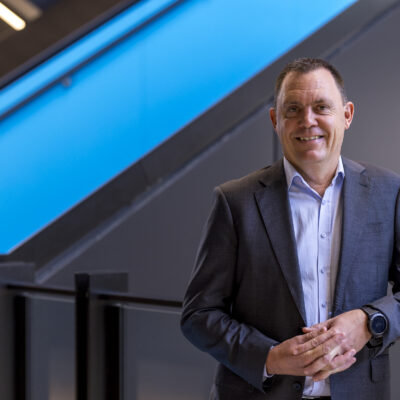Technology in the workplace: friend or foe?
Technology continues to expand its capabilities at a rapid pace, which presents both an opportunity and a challenge for businesses.
Technology continues to expand its capabilities at a rapid pace, which presents both an exciting opportunity and a major challenge for businesses. Productivity expert Debbie Mayo-Smith explains.
It’s hard to cast the mind back to a time where technology didn’t reign supreme. Certainly, it has revolutionised the way we do business. It helps to problem solve, innovate, and inspire change that increases productivity.
Notwithstanding these facts, there is a still a lingering question as to whether technology is truly the hero of the modern work environment, or whether it’s potential largely depends on smart and knowledgeable user behaviour. International business expert Debbie Mayo-Smith would agree with the latter and with good reason – she has evidence from her years of change management within struggling businesses that supports this view.
Mayo-Smith is a best-selling author and the most sought-after productivity speaker and trainer in New Zealand. She’s also the mother of six children including triplets and twins. Businesses whose office software has become their Achilles heel, rather than a valuable asset, turn to her for help to implement critical change that recovers time, resource and money in spades.
Mayo-Smith takes a first principles approach to technology, first looking at one of the erroneous assumptions made by employers – that staff know what they are meant to be doing with it. Even the millennial generation who’ve grown up with a digital silver spoon in their mouth aren’t very conversant with software used in a business environment. As for many of the Baby Boomers who may be on the precipice of retirement but are still very much an integral part of the workforce, their relationship with technology is strained and uncomfortable.
“From business owners, to managers, to personal assistants – even those working in the trades – many haven’t adopted technology well. Often businesses believe their staff know the ins and outs of the software and technology they work with. The reality is almost the opposite. Training has been non-existent in most business environments over the past ten years. Most individuals are self-taught. Software keeps updating without any indication of what is new and different.
“According to the Standish Group, and others, approximately just 20% of software features are frequently used while 50% of the features are rarely, if ever, used.”
Technology continues to improve and expand its capabilities at a rapid pace, and this is part of the opportunity for businesses, as well as their challenge – keeping pace is never easy. For example, translating documents or emails from one language to another was once a consuming and laborious task that required specialist skillsets. Today, language translation is built into software for anyone to use.
As for what is on the horizon and speeding towards us that businesses should be cognisant of. “Well, there’s so much, but my picks are the ones likely to have the most impact,” says Mayo-Smith. “These are centred on automation coupled with Artificial Intelligence (AI). Just as ATMs and Passport eGates have largely replaced bank tellers and immigration officers, emerging technologies will continue to replace other roles.
“Human behaviour will temper the adoption to some degree but not halt it. The Luddites in 19th century England rebelled against the industrialisation of the textile industry but were unable to stop the advance of technology. Of course, the data and privacy issues that come with advances in technology are a whole separate topic.”
Mayo-Smith rests her case about the importance of technological proficiency with a pragmatic scenario.
“If the average worker is only using 20 percent of their current software features today, and technology continues to expand capabilities at a rapid pace, how far will a company be left behind when competing against others that maximise their use of technology?”
Mayo-Smith will deliver a keynote address on people and profit at this year’s Hire Industry Association of New Zealand (HIANZ) ‘People and Profit’ Conference, which will be held at Claudelands in Hamilton from 3-4 July. In a first for the Conference, the doors will be open to non-members including the construction industry, who can purchase tickets to attend New Zealand’s largest equipment trade show.






